Jon Nelson
High-quality Thermal Gibbs Sampling with Quantum Annealing Hardware
Sep 03, 2021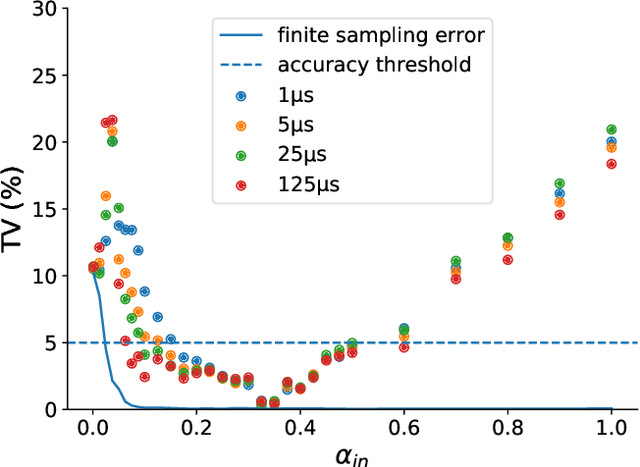
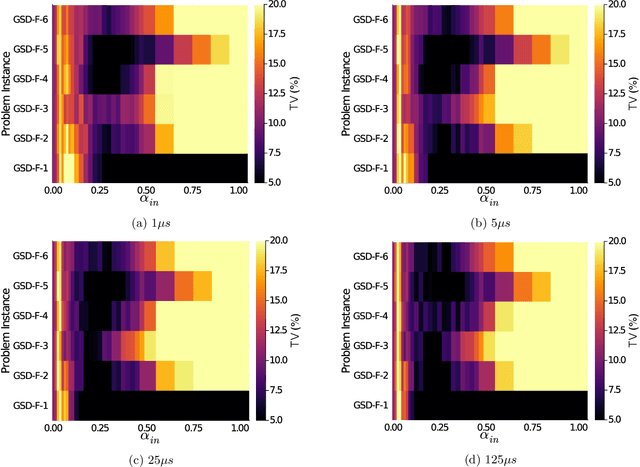
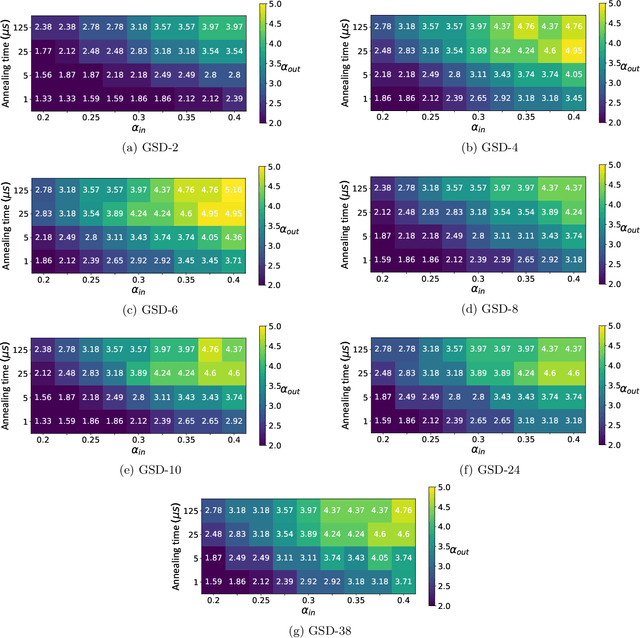
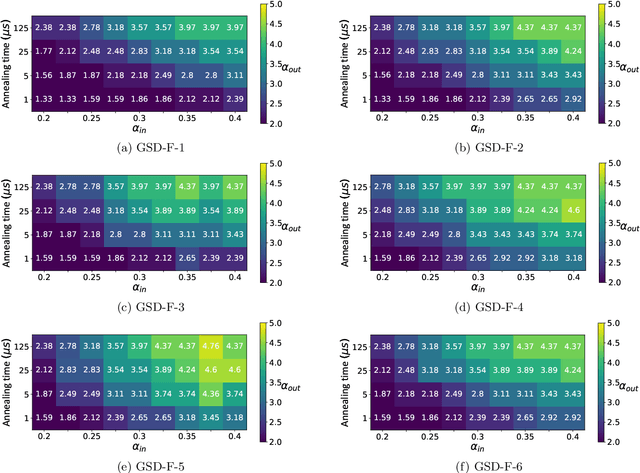
Abstract:Quantum Annealing (QA) was originally intended for accelerating the solution of combinatorial optimization tasks that have natural encodings as Ising models. However, recent experiments on QA hardware platforms have demonstrated that, in the operating regime corresponding to weak interactions, the QA hardware behaves like a noisy Gibbs sampler at a hardware-specific effective temperature. This work builds on those insights and identifies a class of small hardware-native Ising models that are robust to noise effects and proposes a novel procedure for executing these models on QA hardware to maximize Gibbs sampling performance. Experimental results indicate that the proposed protocol results in high-quality Gibbs samples from a hardware-specific effective temperature and that the QA annealing time can be used to adjust the effective temperature of the output distribution. The procedure proposed in this work provides a new approach to using QA hardware for Ising model sampling presenting potential new opportunities for applications in machine learning and physics simulation.
Single-Qubit Fidelity Assessment of Quantum Annealing Hardware
Apr 07, 2021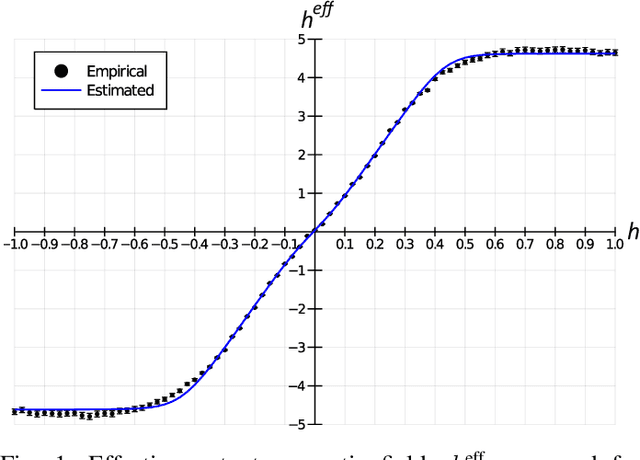
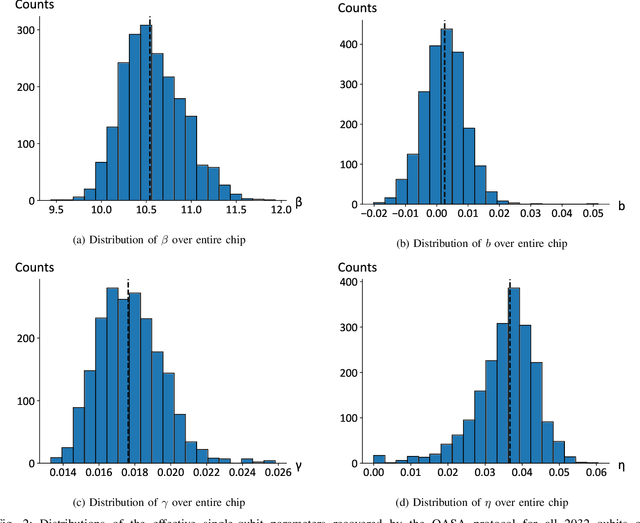
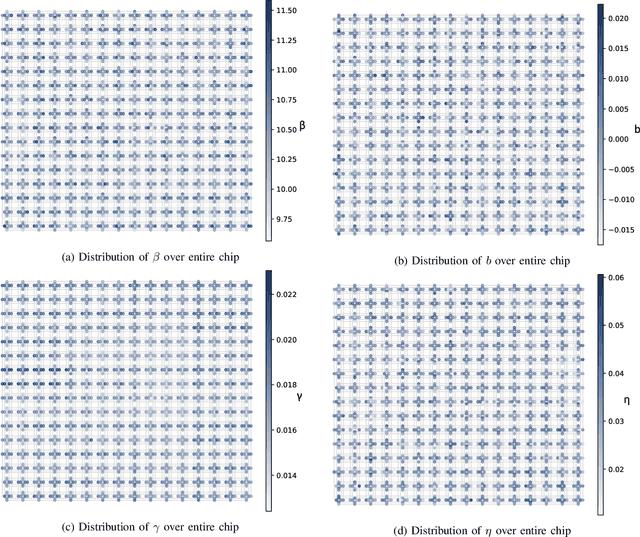
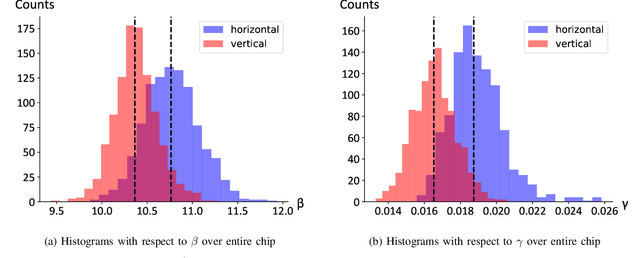
Abstract:As a wide variety of quantum computing platforms become available, methods for assessing and comparing the performance of these devices are of increasing interest and importance. Inspired by the success of single-qubit error rate computations for tracking the progress of gate-based quantum computers, this work proposes a Quantum Annealing Single-qubit Assessment (QASA) protocol for quantifying the performance of individual qubits in quantum annealing computers. The proposed protocol scales to large quantum annealers with thousands of qubits and provides unique insights into the distribution of qubit properties within a particular hardware device. The efficacy of the QASA protocol is demonstrated by analyzing the properties of a D-Wave 2000Q system, revealing unanticipated correlations in the qubit performance of that device. A study repeating the QASA protocol at different annealing times highlights how the method can be utilized to understand the impact of annealing parameters on qubit performance. Overall, the proposed QASA protocol provides a useful tool for assessing the performance of current and emerging quantum annealing devices.
AdaSense: Adaptive Low-Power Sensing and Activity Recognition for Wearable Devices
Jun 10, 2020



Abstract:Wearable devices have strict power and memory limitations. As a result, there is a need to optimize the power consumption on those devices without sacrificing the accuracy. This paper presents AdaSense: a sensing, feature extraction and classification co-optimized framework for Human Activity Recognition. The proposed techniques reduce the power consumption by dynamically switching among different sensor configurations as a function of the user activity. The framework selects configurations that represent the pareto-frontier of the accuracy and energy trade-off. AdaSense also uses low-overhead processing and classification methodologies. The introduced approach achieves 69% reduction in the power consumption of the sensor with less than 1.5% decrease in the activity recognition accuracy.
 Add to Chrome
Add to Chrome Add to Firefox
Add to Firefox Add to Edge
Add to Edge